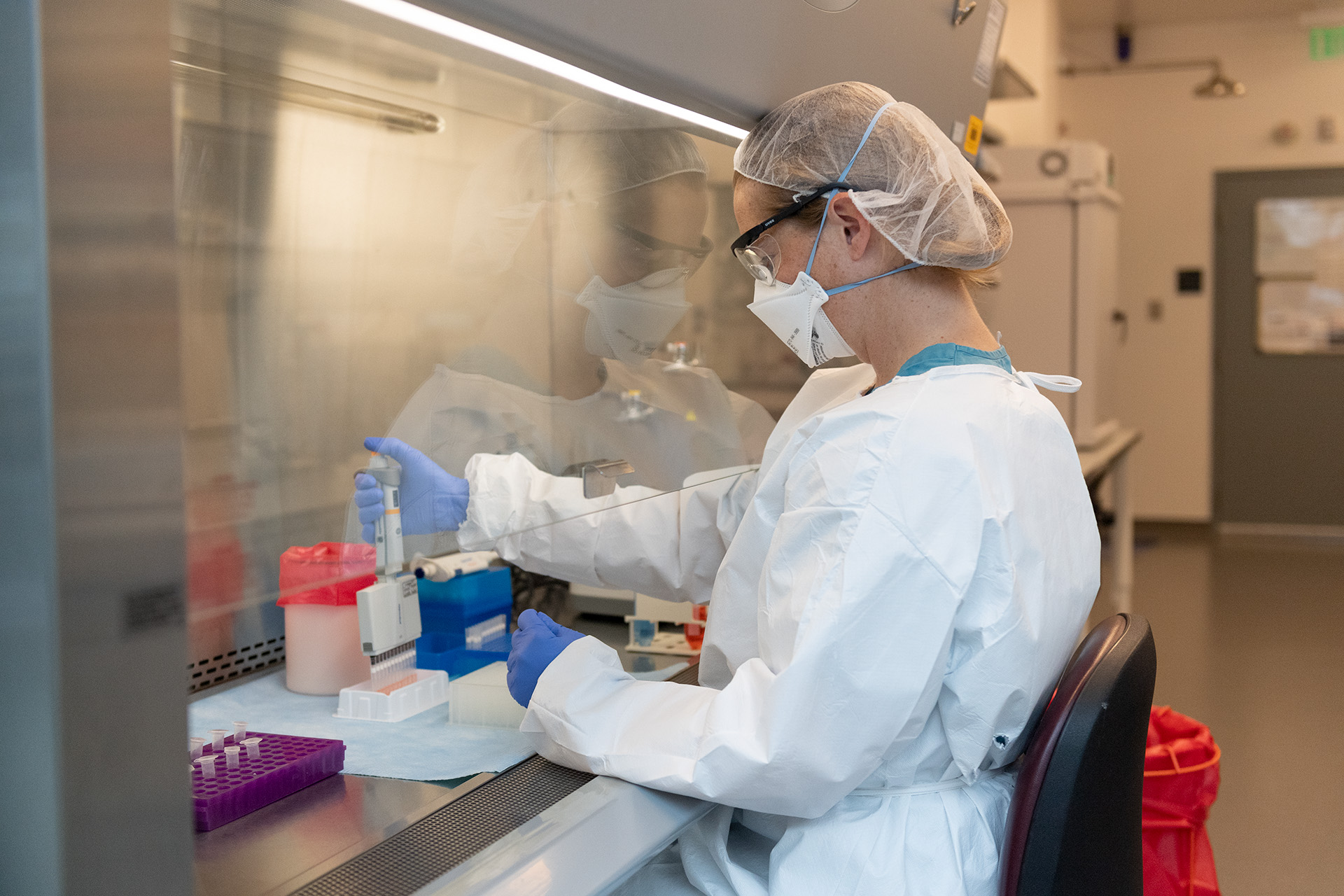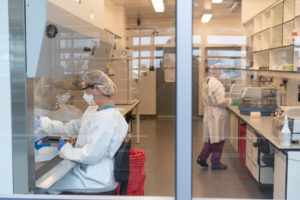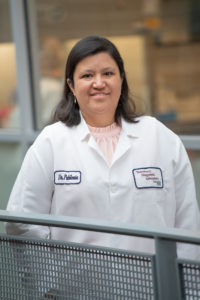
At the ready to help the local community process more coronavirus tests, the Veterinary Diagnostic Laboratory at Colorado State University is bringing its expertise in animal disease surveillance into the human health world.
The laboratory conducts over 600,000 tests annually, helping identify and diagnose a variety of animal diseases for veterinarians, livestock producers, pet owners, government agencies, and animal-health companies. From a technological perspective, adding SARS-CoV-2 testing to its repertoire of capabilities is actually pretty simple. SARS-CoV-2 is the coronavirus that causes COVID-19.
“We respond to animal disease outbreaks often,” said Kristy Pabilonia, director of the Veterinary Diagnostic Laboratory. “What we do here on a daily basis uses the same processes and technology for animal testing as those used for human testing.”
In their Biosafety Level 3 facility, a special laboratory for testing highly infectious bacteria and viruses, high-throughput testing equipment can test 96 samples at a time, multiple times a day. The diagnostic test, called a real-time polymerase chain reaction assay, detects a virus’s nucleic acid (SARS-CoV-2 is an RNA virus) in each sample to determine if the virus is present.
“Because we test large populations of animals, we have a diverse testing scope and capabilities for testing large numbers of samples using our high-throughput equipment,” Pabilonia said.
Securing certification

Although the lab is capable of running tests for SARS-CoV-2, the virus that causes COVID-19, attaining the correct permissions and certifications to run human tests presented some challenges. While already accredited by the American Association of Veterinary Laboratory Diagnosticians as a quality laboratory testing facility in the veterinary world, it also needed Clinical Laboratory Improvement Amendments (CLIA) certification for laboratory testing performed on humans.
Partnering with CSU’s Health and Medical Center, which already runs a CLIA-certified laboratory, the veterinary lab was able to apply for and expedite certification for its facility. The CSU lab also worked directly with the Colorado Department of Public Health and Environment to obtain human samples for validation testing.
“What the Veterinary Diagnostic Laboratory does to validate its tests and maintain its quality standards is equally as high as the Health and Medical Center,” said Heather Pidcoke, CSU’s chief medical research officer. “They were able to gain certification for human testing within about two weeks.”
The quality system requirements for CLIA-certified labs are similar to those required by the veterinary association and are based on an international laboratory standard. With high quality standards, processes, and training already in place, becoming certified by CLIA and getting the testing system up and running was easy to do.
“We are collaborating with the Veterinary Diagnostic Laboratory and provided some technical guidance on transitioning to a CLIA lab,” said Lori Lynn, associate executive director of the CSU Health and Medical Center. “We’re continuing to discuss what large-scale testing might look like and how we could work together to address testing of the CSU community.”
Prepared for partnership

Ready to pitch in with extra testing capacity, the lab is working with local public health authorities to set up a process for accepting samples from medical providers. The lab will also be available to validate tests from CSU research studies, because human tests used in research can’t be used to provide diagnoses to participants.
With its large-scale facilities and equipment, the lab plans to perform testing for COVID-19, in addition to its existing commitments. This includes taking on additional rabies testing for the Colorado Department of Public Health and Environment so the state can free up resources to focus on COVID-19 testing.
“We’re not sacrificing what we do for animal health patients,” Pabilonia said. “We’re still up and running, and will continue to provide our regular lab services.”
Just as the Veterinary Diagnostic Laboratory identifies diseases in animals, its contributions to COVID-19 testing in Colorado is doing the same for people, too.
“We want to help our community,” Pabilonia said. “We already have the knowledge, training, and capacity, so we want to step in and offer what we can.”
Not a coronavirus testing site
The Veterinary Diagnostic Laboratory processes human samples, but it doesn’t collect them. It is not a place for people to get swabbed for coronavirus. Samples can only be submitted by medical authorities and researchers.
While there is some evidence humans can transmit the virus to cats and ferrets, if your pet or other animal becomes ill, do not bring your animal to the Veterinary Diagnostic Laboratory for testing. Instead, call your veterinarian to let them know that you are bringing a sick pet that was exposed to a person with coronavirus. Do not take the animal to a veterinary clinic until you have had a discussion with clinic staff. Tell them about any contact the animal may have had with someone with the COVID-19 infection.
Animals can be tested for coronavirus, but it is only done in rare cases and requires several approvals from state officials.